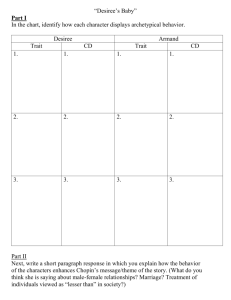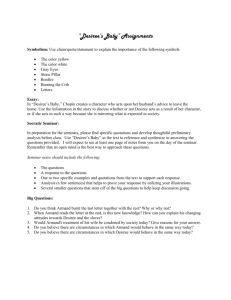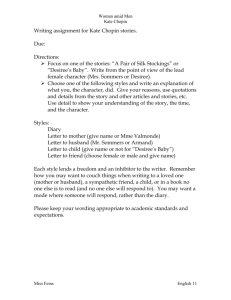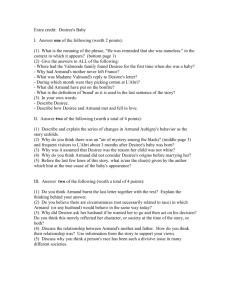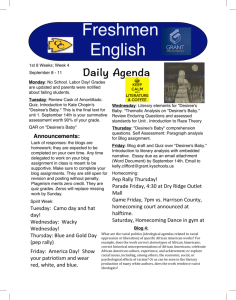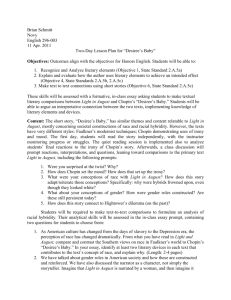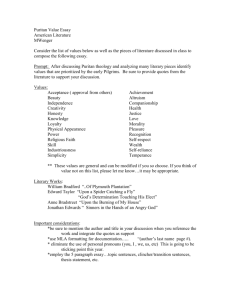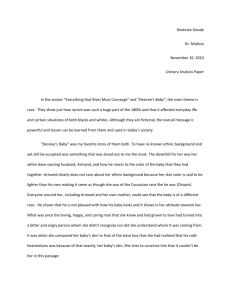Peer Review Examples: Essay Analysis & Feedback
advertisement
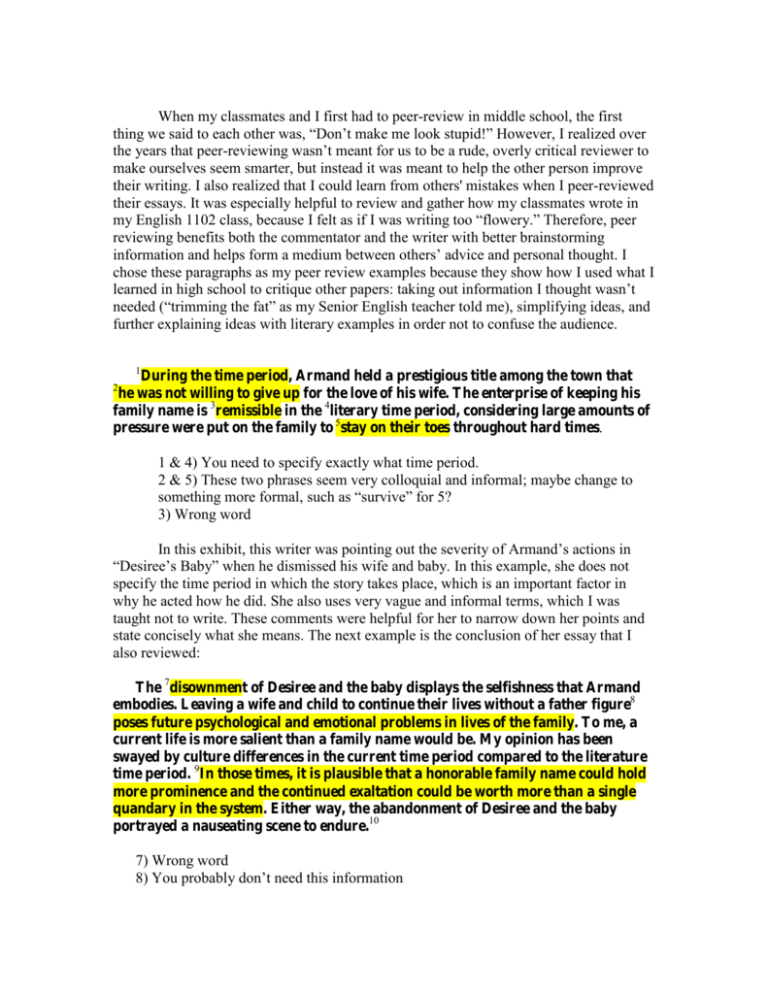
When my classmates and I first had to peer-review in middle school, the first thing we said to each other was, “Don’t make me look stupid!” However, I realized over the years that peer-reviewing wasn’t meant for us to be a rude, overly critical reviewer to make ourselves seem smarter, but instead it was meant to help the other person improve their writing. I also realized that I could learn from others' mistakes when I peer-reviewed their essays. It was especially helpful to review and gather how my classmates wrote in my English 1102 class, because I felt as if I was writing too “flowery.” Therefore, peer reviewing benefits both the commentator and the writer with better brainstorming information and helps form a medium between others’ advice and personal thought. I chose these paragraphs as my peer review examples because they show how I used what I learned in high school to critique other papers: taking out information I thought wasn’t needed (“trimming the fat” as my Senior English teacher told me), simplifying ideas, and further explaining ideas with literary examples in order not to confuse the audience. 1 During the time period, Armand held a prestigious title among the town that he was not willing to give up for the love of his wife. The enterprise of keeping his family name is 3remissible in the 4literary time period, considering large amounts of pressure were put on the family to 5stay on their toes throughout hard times. 2 1 & 4) You need to specify exactly what time period. 2 & 5) These two phrases seem very colloquial and informal; maybe change to something more formal, such as “survive” for 5? 3) Wrong word In this exhibit, this writer was pointing out the severity of Armand’s actions in “Desiree’s Baby” when he dismissed his wife and baby. In this example, she does not specify the time period in which the story takes place, which is an important factor in why he acted how he did. She also uses very vague and informal terms, which I was taught not to write. These comments were helpful for her to narrow down her points and state concisely what she means. The next example is the conclusion of her essay that I also reviewed: The 7disownment of Desiree and the baby displays the selfishness that Armand embodies. Leaving a wife and child to continue their lives without a father figure8 poses future psychological and emotional problems in lives of the family. To me, a current life is more salient than a family name would be. My opinion has been swayed by culture differences in the current time period compared to the literature time period. 9In those times, it is plausible that a honorable family name could hold more prominence and the continued exaltation could be worth more than a single quandary in the system. Either way, the abandonment of Desiree and the baby portrayed a nauseating scene to endure.10 7) Wrong word 8) You probably don’t need this information 9) “a honorable family” needs to be changed to “an honorable family,” and the sentence seems very awkward and complex . . . It’s difficult to understand exactly what you’re trying to conclude. 10) You need to have more evidence and form a concise opinion and conclusion. You end on a “either way” note, but you need to set a firm opinion and use more evidence from the book or critics rather than your own personal experience. Keep it literary. But overall good job! I critiqued this paragraph very closely because I felt a conclusion should be very precise and clear. She again struggled to find the right word, as I and many writers do. I also noted phrases that probably didn’t need to be included because they seemed to represent a completely different idea. The entire essay seemed to be strictly from her views and beliefs, which is good to have in an essay; however, I also noted that it doesn’t need to strictly be about this; she needed to add more literary analysis. I added a “good job!” at the end to continue motivating her to finish a strong, good quality essay, which she continued to do. I chose each of these examples to show my skills in closely analyzing a classmate’s paper and helping her “trim the fat” with unnecessary details. These examples also illuminate my skills in grammar/diction editing, which I do meticulously. However, I learned after editing this paper, as well as others, that I needed to lessen the intensity of elaborate language in my essays.
